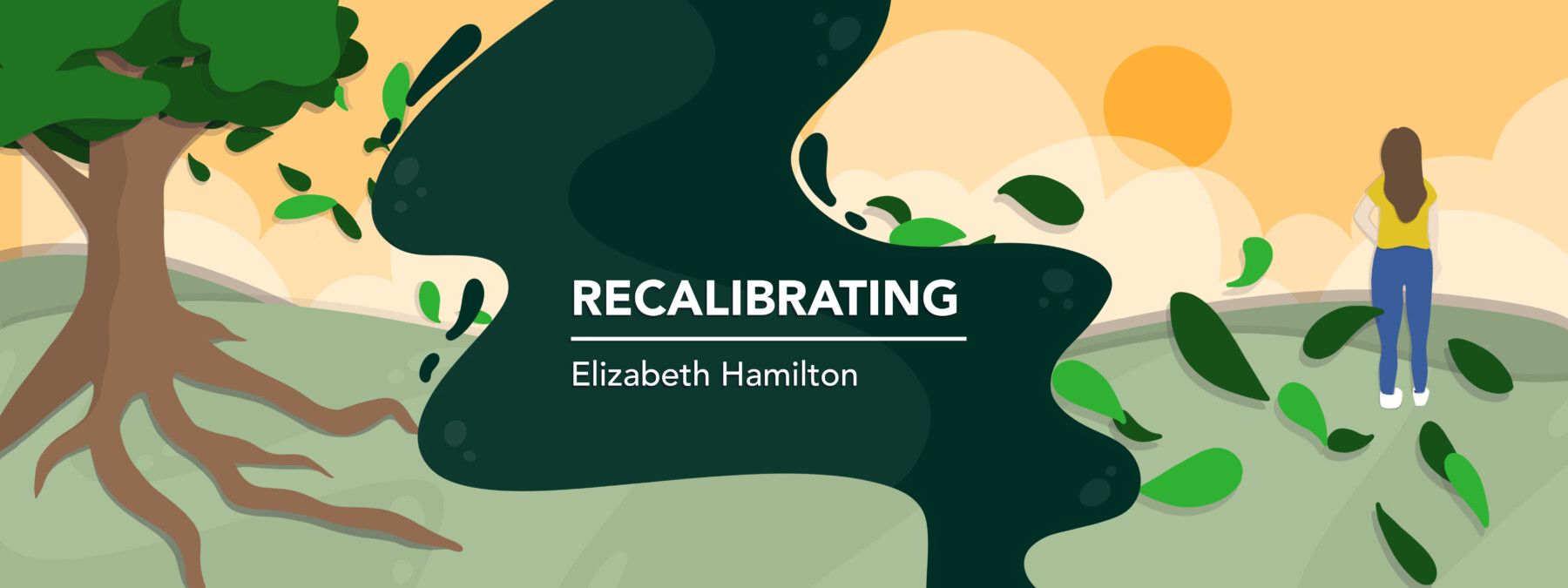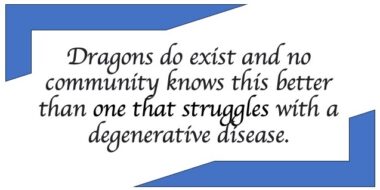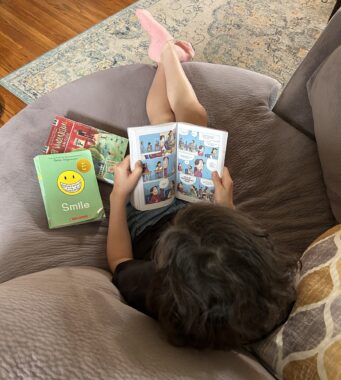How reading supports us on our FA journey
Bibliotherapy can be a valuable tool for children with rare diseases
Written by |

“Fairy tales do not tell children the dragons exist. Children already know that dragons exist. Fairy tales tell children the dragons can be killed.” — often attributed to G.K. Chesterton
My daughter Amelia, who has Friedreich’s ataxia (FA), has always been afraid of the dark. The bedtime requests to check under the bed and then the closet were later replaced with the phrase, “I’m just scared.” I’ve suspected that those words are code for “I want you to be with me.” Part of me adores this. Part of me also worries that her mind knows what she’s up against physically and her subconscious is sending a message.

(Graphic by Elizabeth Hamilton)
Dragons do exist, and no community knows this better than one that struggles with a degenerative disease. As caregivers, we’re faced with coaching, parenting, and developing skills in our children to face metaphorical dragons we’ve never seen or met. This requires a pause and validation for every caregiver of a child with a rare disease who feels overwhelmed.
It is overwhelming, but we’re not alone.
Finding a road map in books
Bibliotherapy is a well-researched, effective, and naturally occurring way to learn how to overcome obstacles. Through reading, we can walk with heroes who are afraid, second-guess themselves, or sometimes even have to work through failure. By cracking open the pages of a book or tuning into an audiobook, we can find comfort, support, inspiration, and connection.
I’d forgotten all the research I completed around bibliotherapy while getting my master’s until it stared me in the face. It arrived in the form of a graphic novel with Amelia cuddled in my arms. We were reading a book about a child who didn’t feel well at school and struggled with what others might think about her being sick. Amelia slowly nodded her head and said, “I understand how that feels.”
After that, I realized all her favorites played out problems she understood and that paralleled her life. Books like “Wonder,” “Ghosts,” and “Out of My Mind” were read and reread by a child who was learning lessons from the characters’ journeys.

Amelia reads a favorite graphic novel. (Photo by Elizabeth Hamilton)
Even as adults, we sometimes view the road ahead and harken back to a story we read of a mountain climbed, a mission accomplished, or an odyssey taken. At the height of the pandemic, there was a push by professionals to have adults take time to read children’s books. Not for their children, but for themselves. Why? Because these stories aren’t just stories; they’re road maps and reminders that sometimes it gets darker before it gets lighter, failure is a chance to learn, and we must keep going.
G.K. Chesterton was correct. To my FAmily, we tell the stories of our successes and our losses. We look to one another as a reminder that this FA dragon can and will be slayed. It’s not “if,” but “when” — and until the “when,” we’re collectively the “how.”
Amelia, beautiful girl, we can do hard things; but let’s read a book first.
Note: Friedreich’s Ataxia News is strictly a news and information website about the disease. It does not provide medical advice, diagnosis, or treatment. This content is not intended to be a substitute for professional medical advice, diagnosis, or treatment. Always seek the advice of your physician or another qualified health provider with any questions you may have regarding a medical condition. Never disregard professional medical advice or delay in seeking it because of something you have read on this website. The opinions expressed in this column are not those of Friedreich’s Ataxia News or its parent company, Bionews, and are intended to spark discussion about issues pertaining to Friedreich’s ataxia.




Leave a comment
Fill in the required fields to post. Your email address will not be published.